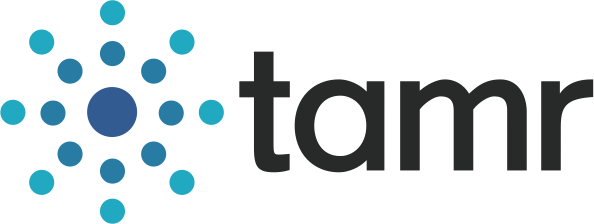
In January, President Obama announced the Cancer Moonshot Initiative with Vice President Joe Biden declaring that one of its greatest challenges the effort will face is the siloed nature of clinical data. That call — to unify science, data and research results across the scientific community — resonated with Tamr, as that’s exactly what the Boston-based startup does daily for large enterprise organizations across industries.
Tamr, Inc. announced that it will extend its next-generation data preparation platform and data science expertise to assist researchers affiliated with the White House’s Cancer Moonshot Task Force. The Task Force, led by Vice President Joe Biden, seeks to double the rate of progress in the fight against cancer by clearing out many of the bureaucratic hurdles that stand in the way of scientific research.
According to Vice President Biden, one of the biggest challenges impeding this progress is the siloed nature of clinical data. Genetic history, medical records and tissue bank data is often not shared amongst scientists, researchers and oncologists, leading to lengthy delays in researching potential cures. Further, even if this data is accessible to the wider scientific community, the sheer variety of formats and standards often limit its immediate usefulness.
In an open letter to Joe Biden on the Cancer Moonshot Task Force, Nidhi Aggarwal, Product and Strategy Lead, Tamr, Inc. suggested three ideas that could overcome standardization and integration challenges:
“1. Think outside the (federal) box for data “command and control.” Vesting a federal agency like the FDA or HHS with the task of designing and implementing a data access and interoperability system would be an old, tired approach to a problem that will take innovation and energy to solve. So why not take a “SpaceX” approach with a public/private partnership among government entities, cancer centers and the pharma and tech industries? The benefits of the Moonshot will accrue to all parties, creating an opportunity to align data interests in a framework optimized for speed and innovation.
2. Solve for interoperability and unification from the start. Most cancer research organizations can’t even look at all the data they already have on studies they’ve run, much less effectively incorporate data from the outside. Your mission demands breaking through enterprise silos and crossing the boundaries of hundreds – maybe even thousands – of organizations. Without a plan for unifying this data for analysis quickly, it will be extremely difficult to make sense of what’s in front of you.
3. Invest today in the tech of tomorrow. In the case of interoperability, this means machine learning technology like Tamr’s that automates the vast majority of data preparation and unification across thousands of sources. When the machine can’t solve the problem on its own, data experts can weigh in with human guidance that gets fed back into the system – to make it even smarter and faster the next time around. At Tamr, we’ve been using this very approach for several large pharmas to catalog and unify data from hundreds and thousands of research scientists and groups – helping them make sense of their own “treasure troves” of information.”
Beyond these suggestions, we’d also like to offer our help: Tamr expertise and technology to apply thisnext-generation approach to data unification. Our staff has decades of experience solving biopharma data management and integration problems — with many lessons learned along the way. Our data unification solutions are grounded in these lessons as well as in advanced database and machine learning technologies pioneered by some of the best minds and institutions in the business. We’d be honored to lend Tamr’s resources to your noblest purpose: “to end cancer as we know it.”
Tamr’s combination of machine learning software and data science expertise enables it to rapidly accelerate the organization, integration and preparation of these massive, diverse data sets, clearing the way for the broader the scientific community to begin sharing and tapping into this treasure trove of information. As part of the offer, organizations affiliated with the Moonshot Task Force may apply for a free license of Tamr’s software, as well as tap the experience of Tamr’s data scientists.
“The volume and variety of shared ‘big cancer data’ may be the Moonshot’s most valuable asset — and its biggest challenge,” said Nidhi Aggarwal, Head of Product and Strategy at Tamr. “Moonshot organizations will need help preparing and unifying all of this shared data for analysis. This is what we do at Tamr. We’d be honored to lend Tamr’s resources to the the task force’s mission to ‘to end cancer as we know it.'”
For researchers affiliated with the Moonshot Task Force that wish to apply to Tamr’s program, they may apply online at visit www.tamr.com/cancer-moonshot.
